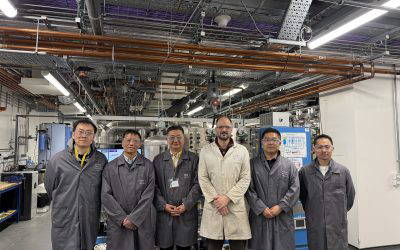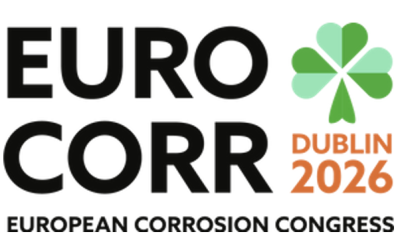The latest article from ICorr Fellows who have made a significant contribution in the field of corrosion control is by Dr Sadegh Parvisi, Senior Principal Materials Engineer, McDermott, who describes the role of a Corrosion, Materials and Metallurgy Engineer. With some decades of professional engineering experience in engineering companies, operations and R&D, the author now shares this experience with fellow workers in ICorr.
The role of the Corrosion, Materials and Metallurgy Engineer in the integrity of Oil and Gas projects
This brief article is intended to highlight some strategic ideas to enhance the interaction of the Corrosion, Materials and Metallurgical (CMM) discipline with other fields, to improve the integrity of a project and enhance the reliability of the plants. It also aims to show the workflow, and identify the mechanism of interaction between all the disciplines engaged in the execution of a project.
Why CMM ?
Today’s corrosion engineers cannot produce meaningful and reliable outputs without having a proper relevant knowledge of Materials and Metallurgy. For instance, for a corrosion engineer it is not sufficient to only know the electrochemical processes well, but it would also be necessary for him/her to have a clear idea of the difference between PVC and CPVC. The CMM engineer should also understand, for example, the role of molybdenum on pitting and crevice corrosion of stainless steels, and to assess that even if this is not an issue, it is still vital to be aware of the huge cost impact of selecting between SS304 and SS316 steels in a LNG project. Hence this being considered as a single discipline which is named CMM.
Why is this subject important?
Consistency between the engineering project specification documents has a significant effect in the integrity of a project. This consistency cannot be achieved unless a dynamic interaction is built between the engineering disciplines. Quite often, it has been experienced that the final version
of the Piping and Instrumentation Diagram (P&ID) is not compatible with the material selection specification or report. Piping classes specifying the material of construction’s corrosion allowance divert from the
as-built P&IDs etc. The root cause of these discrepancies lies in the lack of
proper communication between relevant engineers, in particular in the CMM discipline.
Phases of Project
Any project can go through different phases before it reaches a ‘live’ production. For example:
- Conceptual
FEED
Detailed Engineering
Procurement
Fabrication & Inspection
Installation
Pre-commissioning
Commissioning
Trial Period
Operation
Maintenance
Mothballing
Extension/Revamping
Conceptual
Front End Engineering Design (FEED)
Detailed Engineering
Procurement
Fabrication & Inspection
Installation
Pre-commissioning
Commissioning
Trial Period
Operation
Maintenance
Mothballing
Extension/Revamping
This article intends to briefly address some of the key activities in each phase.
Conceptual Phase
The most fundamental phase in which preliminary materials selection and
corrosion control, based on Statement of Requirement (SOR), and in line
with process design parameters, are made.
- Innovation, discussion meetings with reputed vendors
Risk of employing new technologies should not be ignored
Optimisation and cost savings to be looked at carefully
Discussion and agreement with the client on any software to be utilised before it gets too late
Site visit by CMM engineer can be very useful, if not crucial
FEED Phase
- The project statement of requirements should detail scope of work for
this discipline
Optimisation process, i.e. risk analysis and economic analysis should be conducted
Detailed Engineering comprises
- FEED endorsement
Endorsement correction, HAZOP, licensor, etc. Corrosion control check- ups, Approved changes
Full definition of materials (e.g. exact grade of titanium, etc., for example)
Basis of material selection to be consistent with FEED
Materials requisition and any technical deviation
Critical review of package material, request for compliance
Setting and finalising materials selection, as built
Material selection control manual
Procurement and Construction
- CMM to ensure compliance to specifications, and ensure that an exotic
material choice is not necessarily fit for service.
Vendors technical bid and Concession Request (CR) document
Upgrade requests from vendor should be assessed carefully
Participate in pre-production meeting
Materials selection change request during construction on CP, painting, storage, etc.
Issuing close-out report for as built condition
No compromise to be made if it could affect integrity
Pre-commissioning
The CMM engineers to be alert to some of the procedures in the manual, such as hydro testing, and that they are practiced carefully.
The Interaction mechanisms
The simple diagram shows the relationship between the CMM engineer and the other disciplines, and the table summarises the links between a process engineer and a piping engineer, as the main disciplines interacting with the CMM engineer in any oil and gas project, in order to have a robust and solid material selection philosophy. Similar tables can be produced to include other disciplines’ scope of activities, for instance in applying a corrosion mitigation technique by ICCP, the interaction between CMM, pipeline, civil and electrical engineers should be clearly defined.
Summary
It is important to note that a continuous and integrated input and engagement of the CMM engineer is vital throughout all stages of a project, since the integrity, reliability and safety of the plant depends significantly on the degradation mechanisms and materials selection strategy – the backbone of a CMM engineer’s expertise.
The Oil & Gas company should ensure active participation of the CMM engineer and appropriate interaction of them with other disciplines throughout the project.
It is recommended that
- The engineering director/company should ensure that there is a
continuous active participation, and appropriate interaction, of the
CMM engineer with other disciplines. It is also important that a proper
organisational chart is developed before the start of the project, and
the position and the work scope of the CMM engineer is defined for the
project, without any budget constraints for this important discipline.
The harmful misconceptions that “Nothing Can Be Done About Corrosion!” are avoided
There is increased awareness of the large cost of corrosion and potential savings that can be made
A sound Corrosion Management strategy should be set-up by changing policies, regulations, standards, management practices and attitudes, to increase corrosion mitigation savings
The education and training of staff in recognition of corrosion control should be improved



